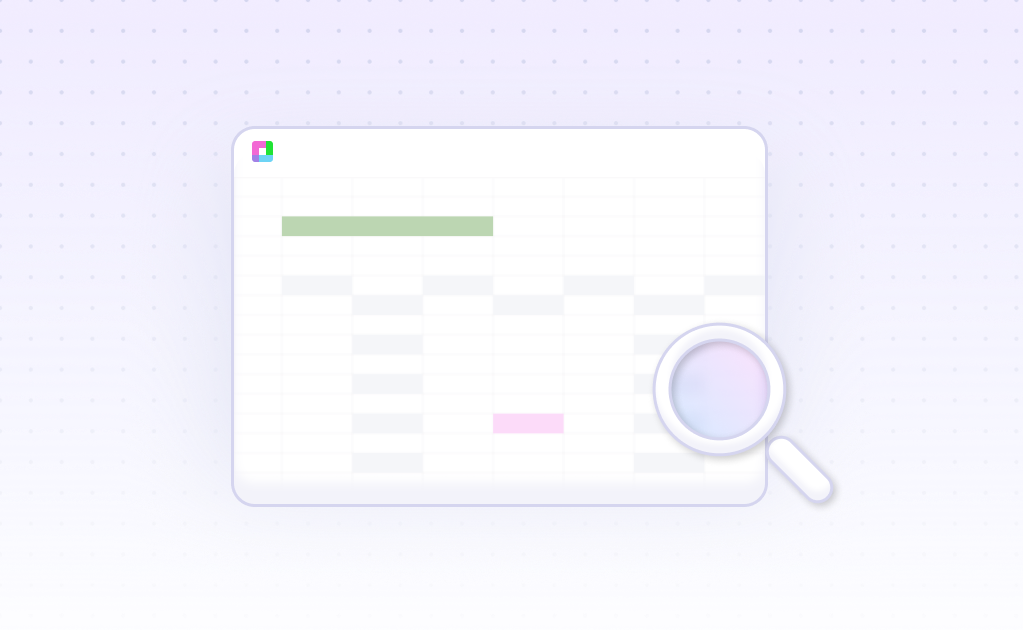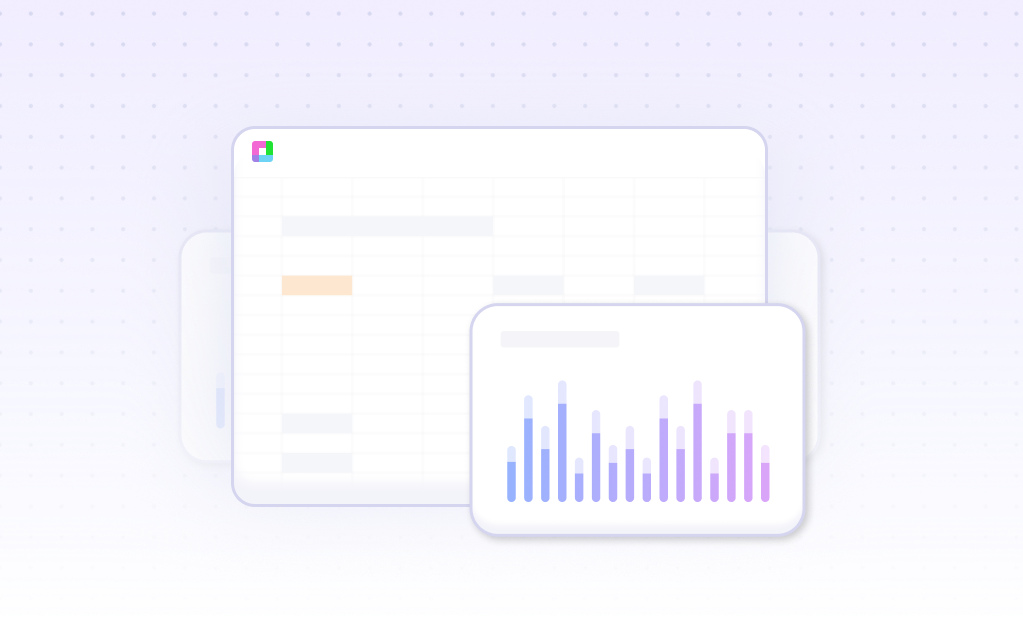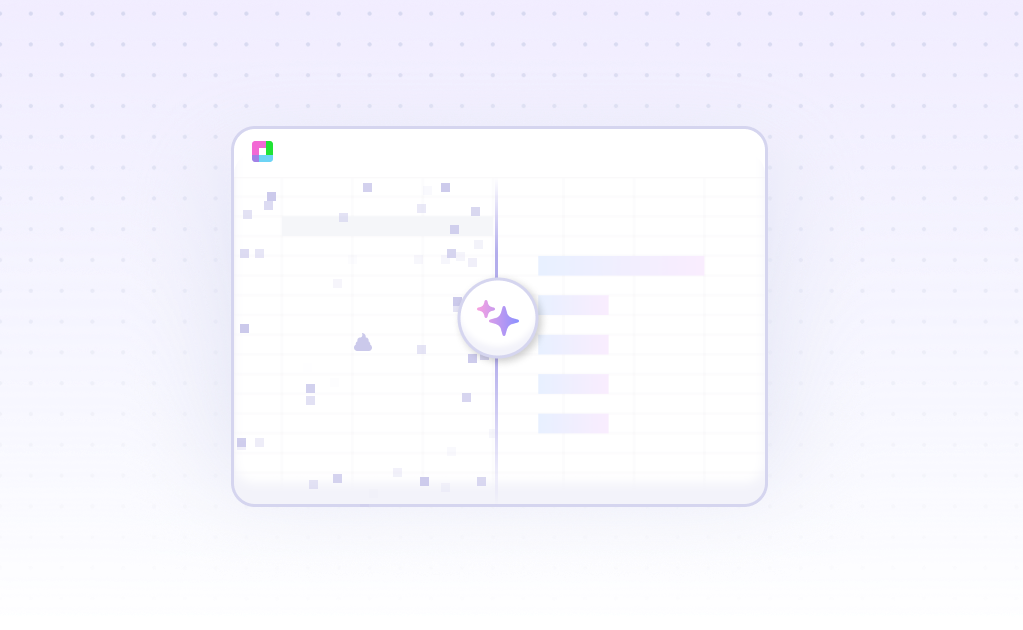
Introduction
Trends analysis helps businesses predict future outcomes and make data-driven decisions. Excel provides traditional tools for this analysis, including trendlines, regression analysis, and moving averages to smooth data fluctuations. While Excel requires manual effort, modern AI-powered alternatives streamline the process.
Sourcetable combines spreadsheet functionality with direct data integration from over 100 sources. This user-friendly platform enables teams to analyze trends across multiple databases and create unified business views without coding. The platform's visualization capabilities and live data workability make it accessible for organizations of all sizes.
Discover how to perform efficient trends analysis with Sourcetable's intuitive interface.
Why Sourcetable Is Superior for Trends Analysis
Sourcetable revolutionizes data analysis by combining advanced AI technology with spreadsheet functionality. While Excel relies on structured pivot tables for data presentation, Sourcetable automates complex tasks like data cleaning, formula writing, and chart generation. This automation enhances productivity for both beginners and experts.
Excel's Traditional Approach
Excel's method requires manually structuring source data tables and creating pivot tables for visualization. This process demands technical expertise and time-consuming manual setup.
Sourcetable's AI Advantage
Sourcetable streamlines data management tasks through AI-powered automation. Its intuitive interface eliminates the need for complex pivot table creation, making trends analysis accessible to users at all skill levels.
Unlike traditional spreadsheets, Sourcetable simplifies the entire analysis workflow. By automating routine tasks, it allows analysts to focus on interpreting trends rather than managing data structures.
Benefits of Trend Analysis with AI-Powered Spreadsheets
Trend analysis provides essential strategic benefits for businesses seeking to enhance decision-making and optimize resource allocation. Organizations use trend analysis to maintain competitiveness, develop forward-thinking strategies, and identify opportunities for innovation and growth.
Strategic Advantages of Trend Analysis
Businesses leverage trend analysis to capitalize on market opportunities, improve efficiency, and manage costs effectively. The analysis helps organizations adapt to market changes, adjust product pricing, and make informed decisions about operations and supply chains.
Enhanced Analysis with AI-Powered Tools
Modern AI-powered spreadsheet tools enhance trend analysis through natural language processing capabilities. Features like Add Columns, Get Answers, and Ask Anything enable users to analyze data efficiently. The AI Analyst feature and ASK_OPENAI formula provide advanced analytical capabilities for deeper insights.
Organizations can navigate market uncertainties and capitalize on emerging opportunities through comprehensive trend analysis. When combined with other analytical methods, trend analysis provides a robust framework for strategic decision-making and market adaptation.
Types of Trends Analysis in Sourcetable
Sourcetable offers three primary types of trend analysis: time-series analysis, regression analysis, and comparative analysis. These methods enable organizations to examine upward, downward, horizontal, short-term, long-term, and seasonal trends.
Time-Series Analysis
Time-series analysis examines data points collected at regular intervals to identify patterns over time. This method helps predict future sales figures and market trends based on historical data.
Regression Analysis
Regression analysis explores relationships between dependent and independent variables. This analytical approach helps businesses understand correlations and predict future patterns in pricing, demand, and market behavior.
Comparative Analysis
Comparative analysis enables benchmarking against competitors and industry standards. Organizations can identify best practices, pinpoint improvement opportunities, and track performance against market leaders.
These analytical methods help businesses optimize resource allocation, enhance decision-making, and develop proactive strategies for long-term success. Through trend analysis, organizations can navigate market uncertainties while capitalizing on emerging opportunities.
Sourcetable Trends Analysis Use Cases
Financial Data Analysis |
Connect to Quickbooks and Stripe to analyze revenue trends. Use AI to automate formula writing and create visualizations for financial forecasting. Enable real-time collaboration on financial reports with mobile dashboard access. |
Customer Support Analytics |
Sync Zendesk data to analyze support ticket patterns. Use AI to classify and tag text, extract timestamps, and identify user behavior trends. Create automated reports showing support response times and common issues. |
Marketing Performance Tracking |
Integrate HubSpot and Google Analytics data to track campaign effectiveness. Use AI to clean and transform marketing data, calculate ROI metrics, and generate visualization dashboards for stakeholder reporting. |
Industrial Data Analysis |
Process 3D and 4D datasets for mining operations and stockpile management. Analyze LIDAR point clouds with AI-assisted formula creation. Generate automated visualizations for real-time industrial monitoring. |
Frequently Asked Questions
What AI-powered trends analysis capabilities does Sourcetable offer?
Sourcetable uses advanced AI and LLMs to analyze trends in data from CSV files, spreadsheets, and databases. It can clean messy data, generate formulas, create charts, and transform data in 3D and 4D spaces. The platform also supports vector queries and uses cloud computing to analyze data faster than Excel.
What data sources can I analyze with Sourcetable?
Sourcetable can analyze data from CSV files, databases, and integrations with platforms like Hubspot, Google Ads, Klaviyo, Quickbooks, and Stripe. You can use it to generate CAC and LTV reports and query any spreadsheet or database data using natural language.
How does Sourcetable's AI assistant help with data analysis?
Sourcetable's AI assistant helps with text-to-SQL queries, formula assistance, workbook analysis, data cleaning, chart creation, error handling, and data summarization. You can ask questions about your data in natural language, and the AI will help you analyze and visualize the results.
Conclusion
Excel provides powerful tools for trend analysis through trendlines, regression analysis, and moving averages. While Excel requires expertise to create projections and analyze patterns, Sourcetable offers an AI-powered alternative that simplifies the process. You can try Sourcetable's AI-assisted trend analysis capabilities at sourcetable.com/signup.
Sourcetable combines spreadsheet functionality with an AI chatbot that responds to natural language commands. The platform accelerates data analysis by automating formula creation, charting, and data cleaning. With integrations for over 100 data sources and support for Python and SQL, Sourcetable empowers users to perform comprehensive trend analysis without advanced Excel skills.
The AI capabilities in Sourcetable enable pattern recognition, predictive analytics, and real-time insights. These features help businesses forecast consumer behavior, optimize inventory, identify investment opportunities, and create personalized marketing campaigns. By leveraging machine learning and natural language processing, Sourcetable transforms complex data into actionable business insights.
Recommended Analysis Guides
Connect your most-used data sources and tools to Sourcetable for seamless analysis.
Frequently Asked Questions
If your question is not covered here, you can contact our team.
Contact Us




